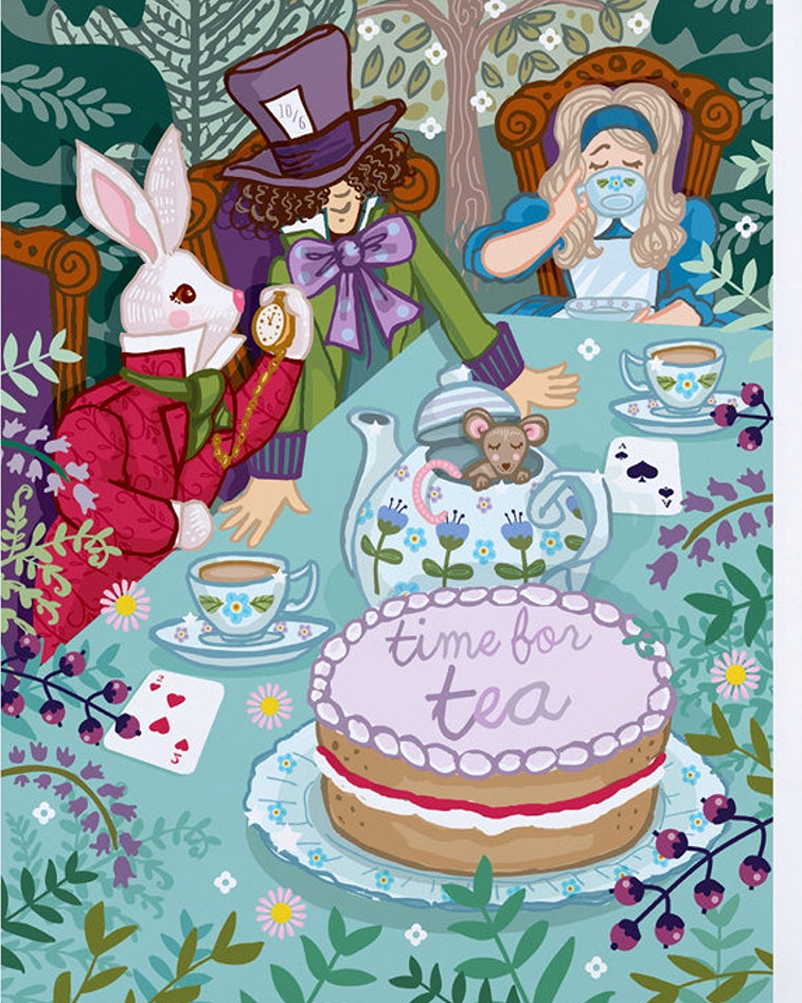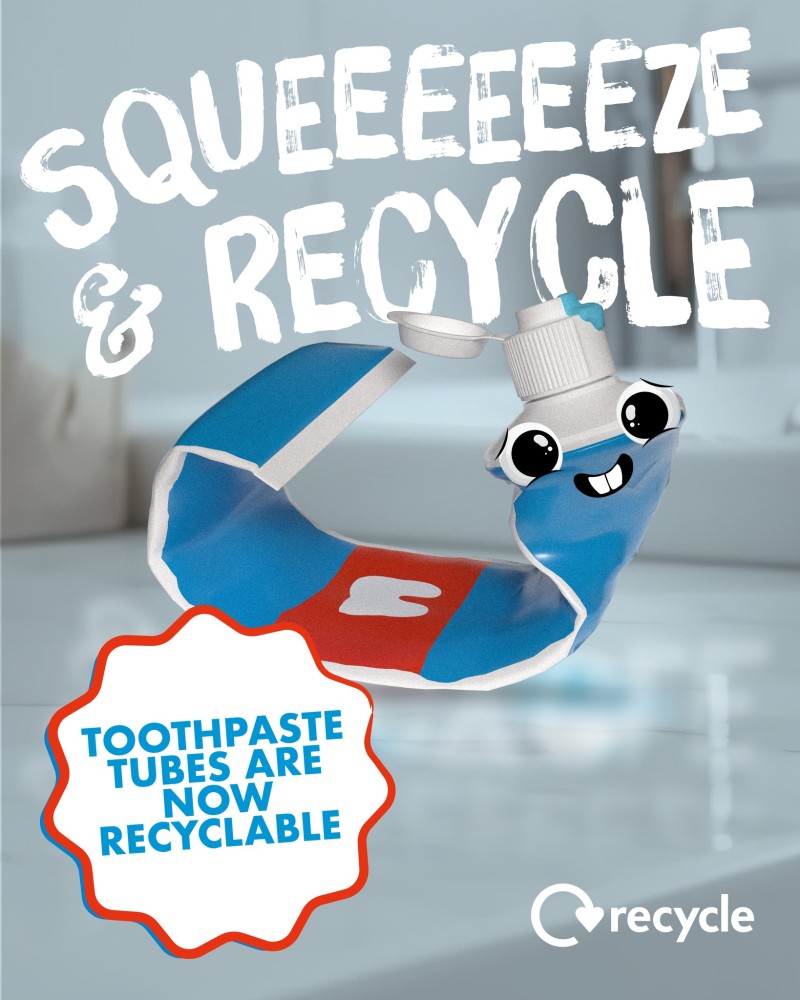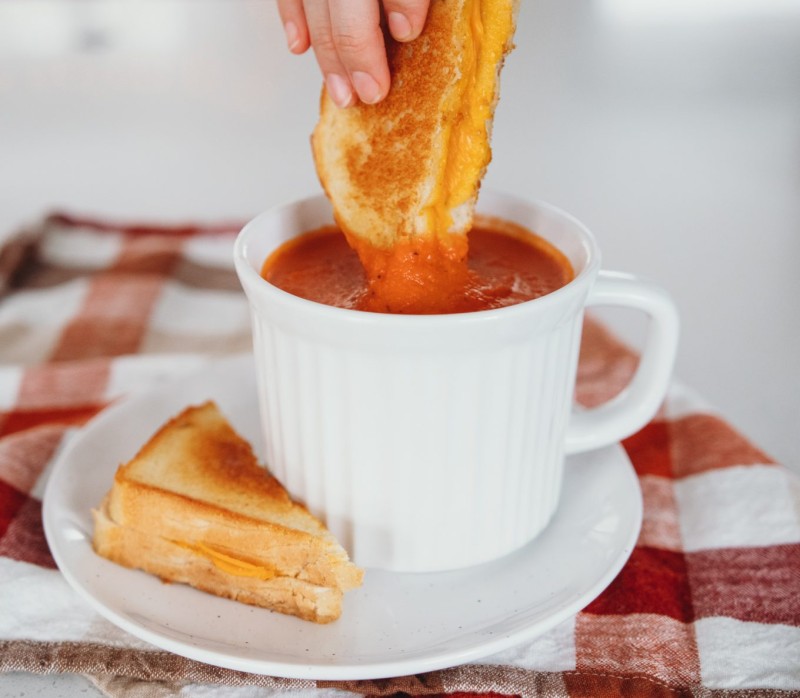Switch to Forest-Friendly Facial Tissues
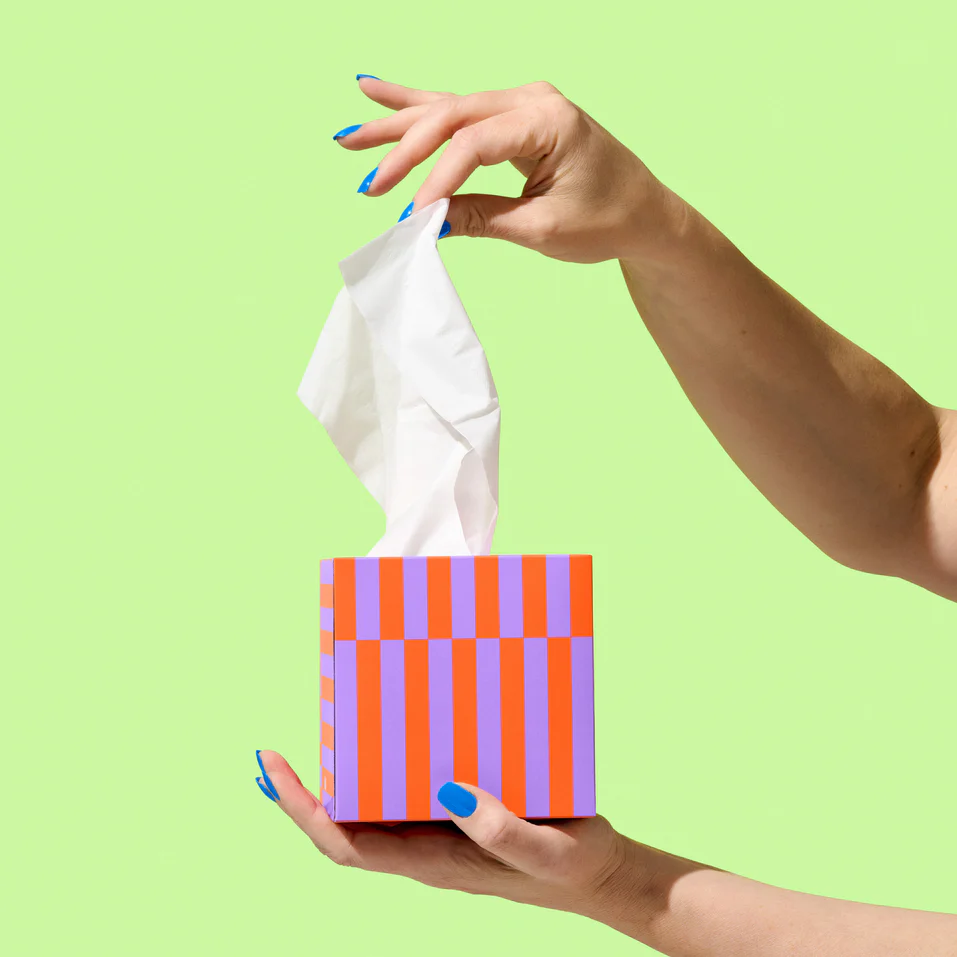
Each year, millions of tree are chopped down daily (mostly in Boreal forests that are home to moose, elk, wolves and grizzly bears), just to make facial tissues that are then wrapped in plastic. Just imagine the effect if everyone switched to recycled paper, bamboo or washable cotton tissues instead?
Who Gives a Crap? sells these fab paper tissues, made from post-consumer waste, and sold in colourful cardboard boxes. Known mostly for its recycled paper toilet roll, it’s now ventured into making a few other products, to stop deforestation for simple household products.
Just bin these tissues for hygiene to naturally break down. Don’t flush them (they are thicker than toilet paper and could clog drains, and cause fatbergs and garden floods (which will not make you popular with your neighbours).
And this company donates 50% of profits to sanitation projects abroad, so that people have access to clean hygienic toilets.
Sold in boxes of 66 tissues, these are are free from scent and dye, and are strong 3-ply (the company says they are so strong, they can cope with the strongest sneezes – even ones that sound like a mini-scream!
At the website, you can buy 12 boxes for £18.00 (66 strong tissues each). And as we all know, a strong tissue means less tissues used). And shipping is free on most orders over £20.
How to Safely Blow Your Nose
If you have a cold or bunged up nose, here’s how to do it – advice from the expert to prevent making your ears pop, rupturing blood vessels, or forcing air into your middle ear (not good).
- Place one finger against one nostril and apply pressure.
- Take a breath, then gently blow the other side of your nose, into the tissue.
- Then do the same on the other side.
- Then wash your hands, avoid passing germs onto others.
Naked Paper (recycled facial tissues)
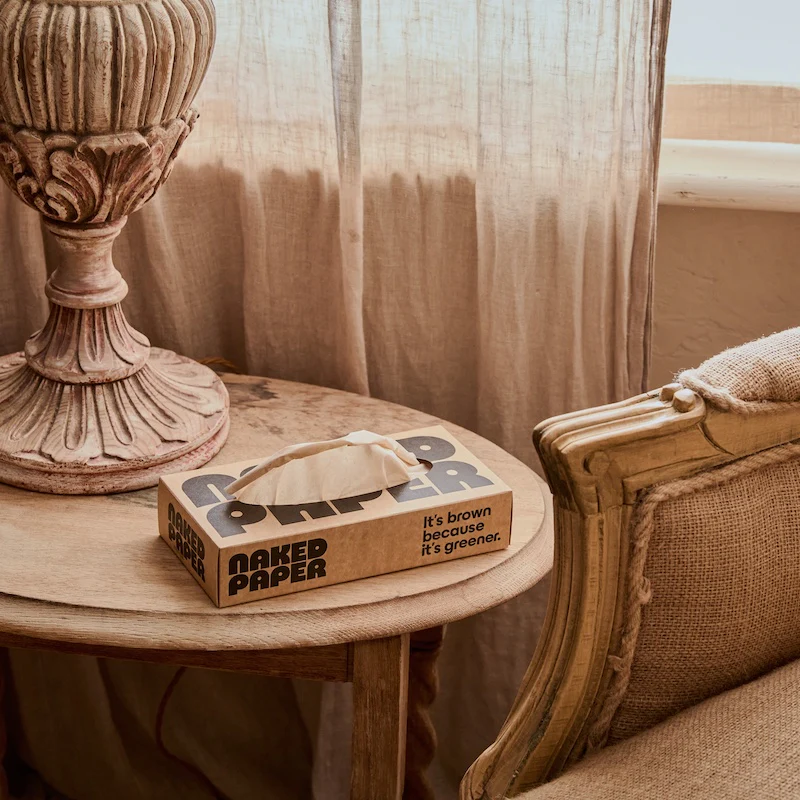
Naked Paper (use code englandnaturally for 10% discount) is a super eco-brand, offering recycled paper facial tissues, kitchen roll and bathroom tissue, all sold in zero waste packaging. These super-soft 2-ply tissues are free from scent, and cost the same per tissue as leading brands.
Serious Tissues (made from old cereal boxes!)

Serious Tissues offers quality paper tissues as nice on your nose as premium brands, but these are made from 100% recycled paper, in plastic-free packaging. As well as being free from dyes or scents, these tissues are produced in the Midlands, creating employment for local people.
Just bin these tissues for hygiene to naturally break down. Don’t flush them (they are thicker than toilet paper and could clog drains, and cause fatbergs and garden floods (which will not make you popular with your neighbours).
Made from old cereal boxes and newspaper), each delivery includes 6 packs of 72 tissues, in thick 3-ply size. The tissues are naturally off-white, using a non-chlorine bleaching agent to remove colour from recycled magazines and documents. Save 10% on monthly deliveries.
The company can also supply wholesale to doctor surgeries, hospitals, offices, hotels etc. The brand was founded by four fathers (collectively to eight children), who wished to do something to help. A tree is planted for each box sold (a million trees and counting) to store carbon and provide homes for wildlife.
At the website, you can subscribe online for big savings (you can pause or cancel anytime). This works out way more affordable than buying separate boxes in shops. And it’s good to have them on standby, as you never know when you’re going to get a cold!
Just what you need for colder weather. A strong tissue to contain your sneezes!
Great quality.
Bumboo: Boxes of Bamboo Facial Tissues
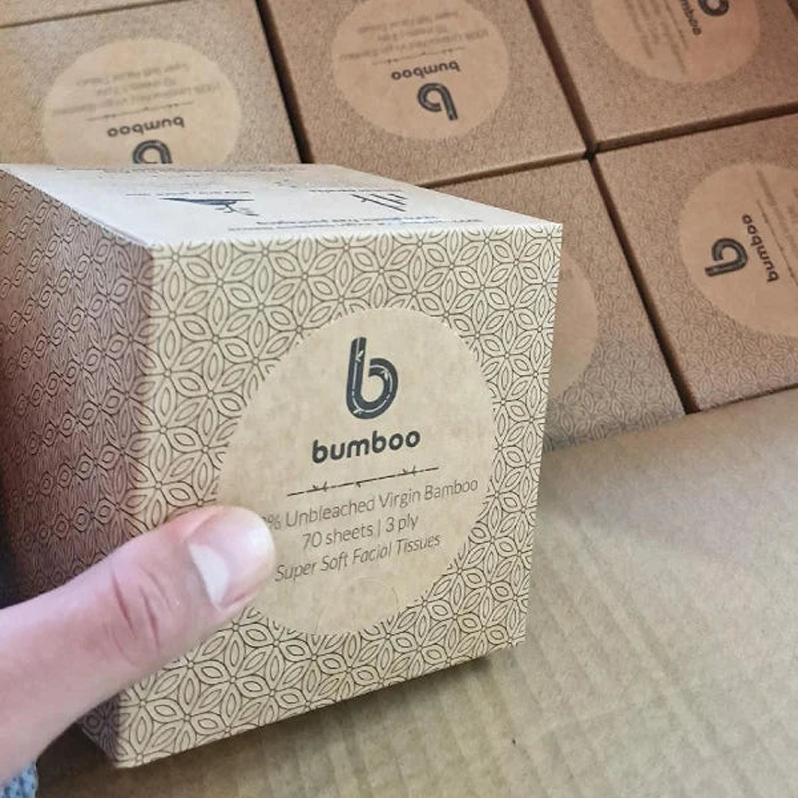
Bumboo Facial Tissues are made from bamboo, 70 sheets per box for teary or sneezy moments. For each sheet you buy from them, they wild double that area in nature. This company uses 100% bamboo.
Bamboo offers a refreshing change from hardwood tissue products. It grows quickly, sometimes up to a metre a day, without the need for fertilisers or re-planting. Bamboo’s root system stays in place after harvest, holding soil and carbon. Its growth pulls in carbon dioxide even faster than young trees.
Industrial bamboo is not the same as fresh shoots, eaten by pandas. It’s not local, but the plants grow so fast, that as soon as they are harvested, new shoots spring right up, so it’s much better than chopping down trees, which often have to grow for 30 years, before harvesting (and are often home to birds and native wildlife).
Reusable Cotton Tissue Choices

This pack of reusable organic cotton tissues is sold in a pack of five, made from durable organic cotton squares. Keep them neatly together in a handy cotton mesh drawstring bag, available to buy alongside. Packed in a paper belly band.
Organic cotton uses 91% less water than conventional cotton and is super-soft on your nose (important when you’ve got the sniffles!) Washing at high temperatures keeps handkerchiefs fresh and safe.
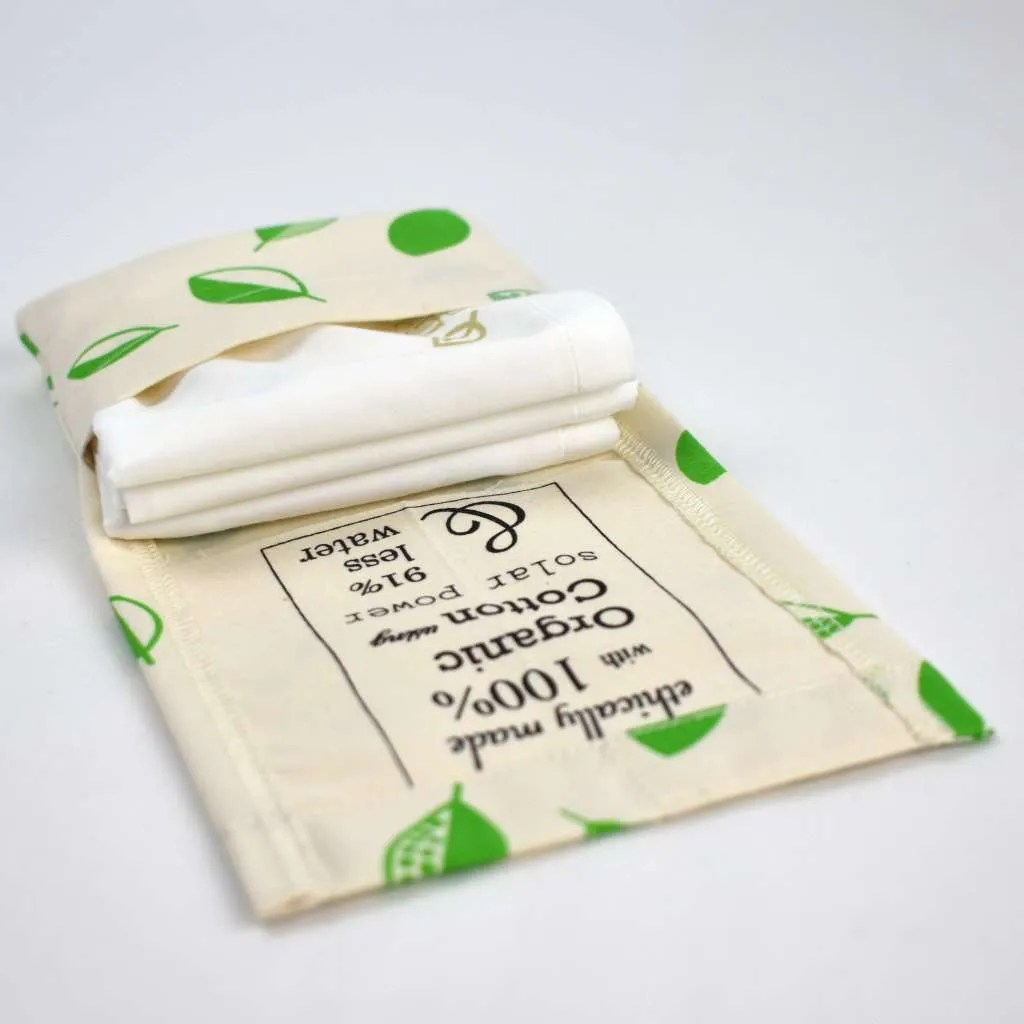
LittleLeaf Organic makes nice organic cotton hankies (also sold in a set of 9). Made with solar power, and sold in recycled cardboard boxes. These hankies are sold in a variety of cute designs including bicycles, turtles and gardening. You can also buy sets of three hankies in a box (including a festive Christmas edition with trees).
The family packs contain 9 hankies and make a great affordable zero waste gift. Each one has a discreet LittleLeaf organic logo in the corner.
You can also use them to wipe your face in hot weather or mop up little spills, then just throw them in the wash (where due to natural materials, they won’t release microplastics in the machine). They’re even made in a solar-powered factory!
HankyBook has reinvented the handkerchief! This compact ‘book’ of soft organic cotton ‘pages’ with a protective outer cover was invented by an engineering student. Just ‘turn the page’ for a fresh hanky! Made in San Diego (USA), you then just ‘pull the pages apart’ to wash in the machine.
Also good to stop fogging up your glasses or deal with running make-up, the protective cover keeps your hands, pockets and bag clean, and helps to prevent infection. Although it’s made abroad, there’s nothing like it (yet) in England, and one purchase should last years.
An Organic Cotton Tissue Dispenser
![]()
LastTissue (USA) is an invention designed to replace 3000 single-use paper tissues. The silicone case contains 6 organic cotton handkerchiefs that are easy to retrieve and stash. Then wash and use again.
To use, just pull a tissue from the dispenser, which features a hygienic way to separate clean and used tissues. After blowing your nose, just place it in the top.
Designed to break even on carbon emissions after 72 uses, the thick tight-woven cotton absorbs well so it doesn’t get damp, and the material gets softer with use. Launder in a mesh bag, to stop them getting cost in the machine. You can clean the case in the dishwasher or with hand sanitiser.



